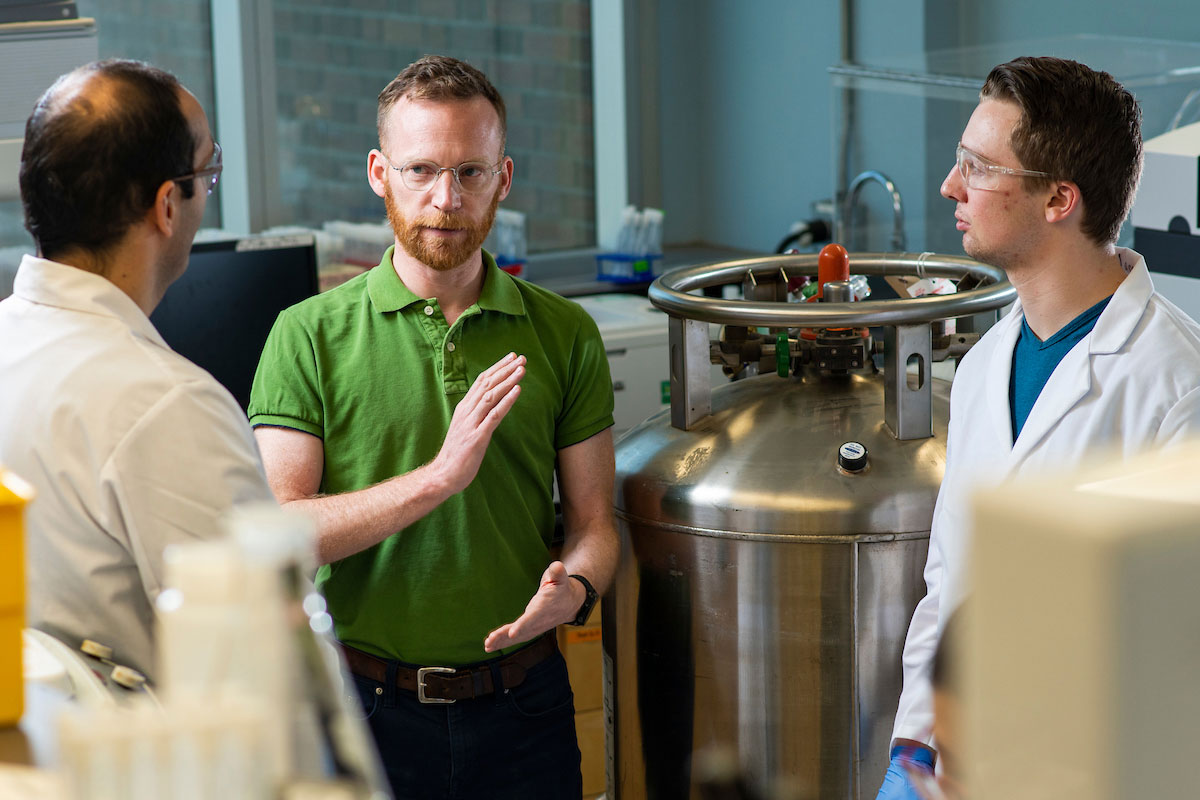
Chris Doornbos, the president and CEO of E3 Metals partnered with Daniel Alessi (centre), assistant professor in the Department of Earth and Atmospheric Sciences, to determine how best to extract and purify the lithium.
The partnership is facilitated by a collaborative research development grant, supported by the Natural Sciences and Engineering Research Council of Canada (NSERC).
A University of Alberta graduate is determined to drive a shift in energy's future, powered by a high-efficiency battery. To help realize his goal, Chris Doornbos, the president and CEO of E3 Metals is working with scientists from his alma mater on a collaborative research project, together providing solutions for the fast and efficient concentration of lithium from Petro-Lithium brine.
"Once we get this project going, we will be able to definitively claim that we are producing the greenest lithium on the planet," said Doornbos. Though quick to point out that lithium batteries aren't the silver bullet to society's environmental challenges, Doornbos encourages it's a promising start to transition us toward a decentralized energy future. "Fundamentally, I've always believed that the key to energy's future is a high-efficiency battery that's going to allow us to move electricity efficiently."
With his company E3 Metals, Doornbos has exploration permits for metallic and industrial minerals for more than half-a-million hectares of land known as the Leduc Reservoir in Alberta. The company is focused on extracting lithium from the brine in the reservoir, which would otherwise be waste material. However, to extract the brine efficiently and effectively, E3 needed research expertise.
To that end, Doornbos connected with Daniel Alessi, assistant professor in the University of Alberta's Department of Earth and Atmospheric Sciences, to determine how best to extract and purify the lithium. The partnership is facilitated by a collaborative research development grant, supported by the Natural Sciences and Engineering Research Council of Canada (NSERC).
Alessi and his lab, including research associate Salman Safarimohsenabad, are focusing on developing the chemical side of the extraction technology and focusing on the purifying processes to ensure the lithium meets the 99.999% pure needs of industry.
"Our role is simply to develop more efficient and greener technologies to get the lithium out of the brine," said Alessi. "We are developing a technology that does not require us to evaporate the brine, and by keeping the lithium in solution, it mitigates the surface footprint. And it's essentially turning a waste product into a resource."
E3 Metals today announced the results of the company's initial metallurgical test work on its proprietary concentration technology. Supported by the research out of Alessi's UAlberta lab, Doornbos and the E3 team will now continue working toward scaling up the new concentration technology, taking society further into a decentralized energy future.